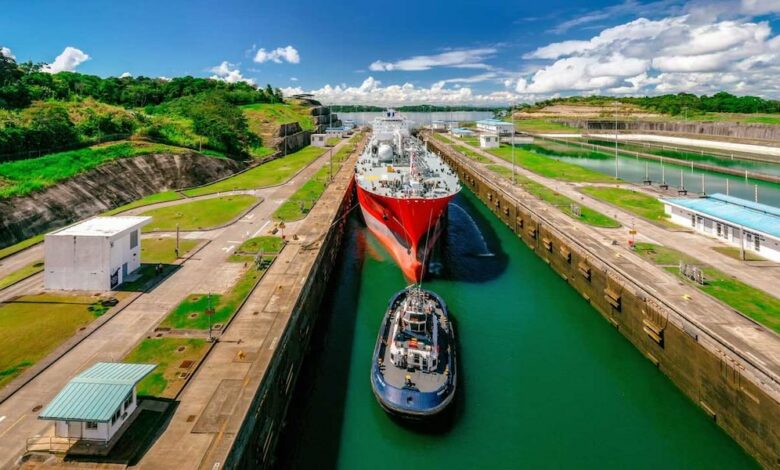Shipping’s exodus from parched Panama in full flow

Global shipping has swiftly learned to live without the Panama Canal with real time seaborne trading maps experiencing one of the greatest and swiftest shifts over the past month.
The transit backlog at the interoceanic waterway today numbers just 77 ships, 13 below the average since the 2016 expansion of the locks, and down by more than 50 vessels in the space of just a fortnight. For those in the queue, however, wait times are long, especially for ships waiting for a northbound convoy where average wait times topped out at over 15 days earlier this week and currently stand at 14.5 days.
Persistent drought has seen the Panama Canal Authority (ACP) slash the maximum draft on its larger locks as well as cut daily transit numbers in half, a situation that is likely to persist through the first half of 2024 at least.
With the ACP communicating its latest transit cuts a month ago, and special auction prices for prized earlier slots soaring to above $4m, a sizeable swathe of the global merchant fleet has sought longer alternatives via the two capes and the Suez to get their goods to market.
For instance, Braemar analysis of vessel tracking data shows a total of 95 transits were completed by bulkers last month, compared to 232 in November 2022.
“Panama Canal transit reductions are reportedly starting to impact costs and operations for some ocean carriers, with three announcing upcoming surcharges for containers using the canal, and others diverting Asia – US East Coast services via the Suez Canal,” stated a recent update from container booking platform Freightos.
The MR tanker market has been particularly affected by the weather in Panama. Recent data from BRS shows the number of MRs waiting to transit has more than halved but analysts at the French broking house warned in its latest tanker markets report volatility connected with the canal should prevail throughout the first half of 2024 as this is typically the dry season in Panama.

